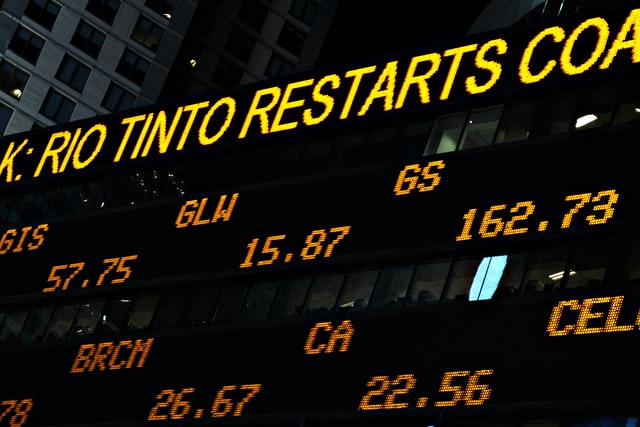Norway’s stock exchange is located in Oslo and was founded in 1819. It is the world’s oldest stock exchange that is still in operation. The Oslo Stock Exchange lists around 130 Norwegian companies
The Oslo Stock Exchange is a member of the World Federation of Exchanges and the Federation of European Securities Exchanges. It operates Monday through Friday, 9:00 am to 5:00 pm CET.
Frequently asked questions about stock trading in Norway
1) What is the best way of trading shares in Norway?
The best advice for anyone wanting to buy or sell shares in Norway is to use one of the many brokerage companies on offer.
2) How do I find out how many stocks are available on the market?
Norwegian stocks are traded over the counter, so there is no central exchange where you can view all available stocks simultaneously. You will only find a continuously updated overview by using one of the many brokerage companies who closely follow Norwegian stock prices and supply their customers with information about current trends every day.
3) How do I know what the current stock price is?
To find the latest stock prices, you can consult one of the many online brokers or newspapers that provide this information. The Oslo Stock Exchange (OSE) also has a website where you can find detailed information about all listed stocks, including their current prices: http://www.ose.no/english/markets-and-prices/stock-market/listed-securities/.
4) Can I trade shares on margin in Norway?
Yes, it is possible to trade shares on margin at some of the brokerage companies in Norway. You can borrow money from the broker to increase your buying power and thus buy more shares than you could afford with cash alone. However, a condition of this is that the loan must be settled by the end of the year.
5) How do I buy or sell shares in Norway?
The most common way to buy or sell shares in Norway is through a bank or brokerage company. These companies have special offers for their customers, and they are always eager to attract new customers.
6) Which stock exchange does my company trade on?
To find out which stock exchange your company is listed on, you must contact your broker directly.
7) How long does it take to transfer shares from one brokerage company to another?
The time it takes to transfer shares from one brokerage company to another depends on the companies in question and whether they have an agreement in place for this type of transfer. However, in most cases, the process will be completed within a few days.
8) Is there a limit to how much I can invest in stocks?
There is no legal limit to how much you can invest in stocks in Norway. However, some brokerage companies may have their limits in place, so it is always advisable to check with them before making any significant investments.
9) Are there any restrictions on foreign investors trading stocks in Norway?
There are no restrictions on foreign investors trading stocks in Norway. However, it is essential to note that all investors must abide by Norwegian law when trading securities here. This includes filing the relevant paperwork and disclosures when required.
10) What should I do if I experience problems with my stockbroker?
If you experience any problems with your stockbroker, you should contact them immediately to try and resolve the issue. If this is not possible or not satisfied with the outcome, you should contact FINN.no’s ombudsman for financial services: http://www.finansklagenemnda.no/english.
11) Where can I find more information about stocks?
There are several websites where you can find detailed information about Norwegian stocks, including their current values and trends. For example, you can visit the Oslo Stock Exchange at www.ose.no.
12) Where can I buy shares in Norway?
You can buy securities through a bank or brokerage company that will handle all necessary paperwork for you. You also have the option of purchasing assets directly from one member to another on the Oslo Børs.
In conclusion
While some problems can arise when trading in Norway, most issues can be easily solved if traders thoroughly understand Norwegian authorities and regulators.
Once in-depth knowledge has been obtained, it is then possible to find solutions that may help reduce or even eliminate these issues.




